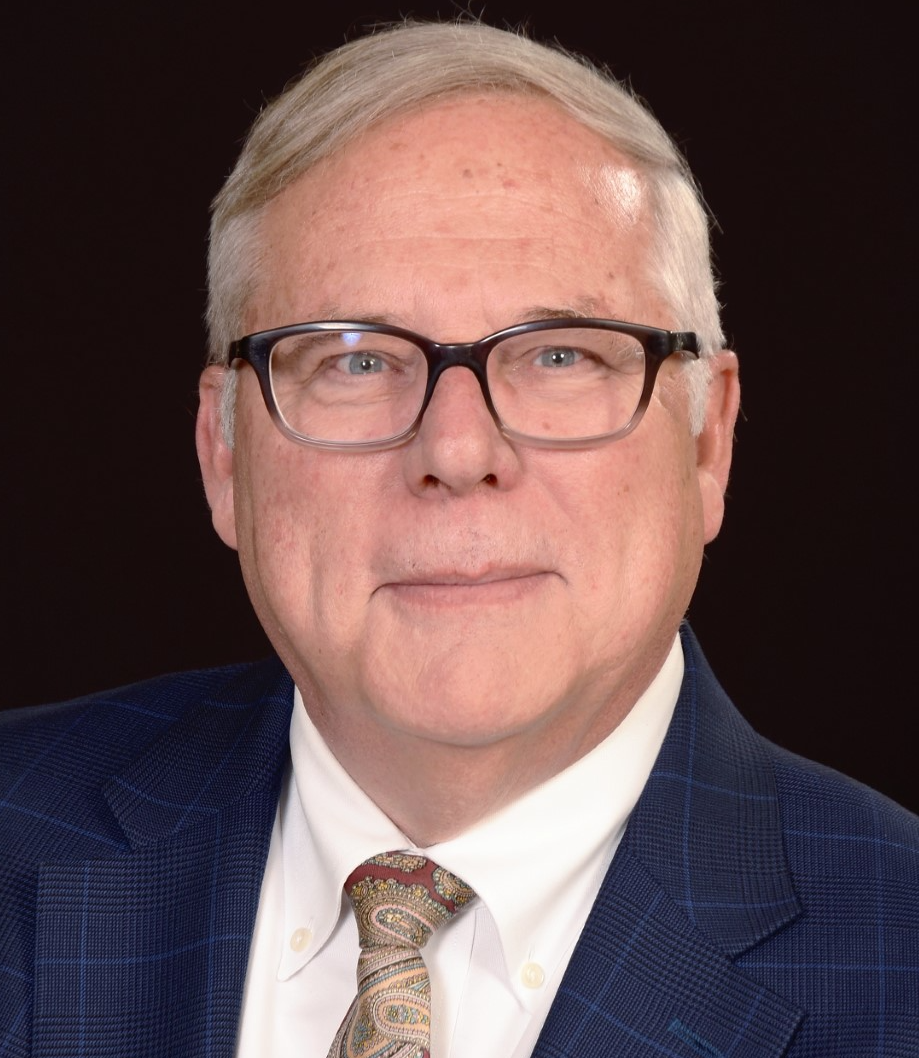
2023 Roundtable
Topic: “E. Paul Torrance: Remembering The Creativity Man and His Legacy 20 Years On”
Invited keynoters – Details to follow
2022 Roundtable
Topic: “Creativity and Wellbeing”
Ruth Richards, MD, PhD
 Ruth Richards is an educational psychologist, Board Certified psychiatrist, and professor for almost 25 years at Saybrook University in Creativity Studies, and Consciousness, Spirituality, and Integrative Health, is a Fellow with the American Psychological Association (APA) in Divs. 10, 32, and 48, and a member of Div. 34. She has published numerous articles, edited/written four books on everyday creativity, and received the Rudolf Arnheim Award from Div. 10 APA for Outstanding Lifetime Accomplishment in Psychology and the Arts. Dr. Richards’ 2018 Everyday Creativity and the Healthy Mind (Palgrave Macmillan, 2018 hardbound, 2019 paperback) won a Silver Nautilus Award (“Better Books for a Better World”). A forthcoming coedited book with David Schuldberg, and Shan Guisinger, features some remarkable contributors, and brings a transformative vision to social scientists in our profoundly interconnected and complex world. The intent is to reawaken awareness of the complexity, interdependence, and multilayered complex adaptive systems of life and of the realms of consciousness we inhabit, along with a new awe, humility, and wonder. Due out in 2020-2021 from Oxford University Press, Chaos and Nonlinear Psychology: Keys to Creativity in Mind and Life, introduces to mainstream linear social sciences, a new worldview. Moving beyond that, it also can affect how each of us live and see our lives—a new view of self-in-world.
Ruth Richards is an educational psychologist, Board Certified psychiatrist, and professor for almost 25 years at Saybrook University in Creativity Studies, and Consciousness, Spirituality, and Integrative Health, is a Fellow with the American Psychological Association (APA) in Divs. 10, 32, and 48, and a member of Div. 34. She has published numerous articles, edited/written four books on everyday creativity, and received the Rudolf Arnheim Award from Div. 10 APA for Outstanding Lifetime Accomplishment in Psychology and the Arts. Dr. Richards’ 2018 Everyday Creativity and the Healthy Mind (Palgrave Macmillan, 2018 hardbound, 2019 paperback) won a Silver Nautilus Award (“Better Books for a Better World”). A forthcoming coedited book with David Schuldberg, and Shan Guisinger, features some remarkable contributors, and brings a transformative vision to social scientists in our profoundly interconnected and complex world. The intent is to reawaken awareness of the complexity, interdependence, and multilayered complex adaptive systems of life and of the realms of consciousness we inhabit, along with a new awe, humility, and wonder. Due out in 2020-2021 from Oxford University Press, Chaos and Nonlinear Psychology: Keys to Creativity in Mind and Life, introduces to mainstream linear social sciences, a new worldview. Moving beyond that, it also can affect how each of us live and see our lives—a new view of self-in-world.
Dr. Richards’ work spans education, clinical areas, social action, spirituality, aesthetics and awareness, and the importance of chaos and complexity theories in areas including our dynamic identity, interconnection, mutual awareness, expanded empathy, and forward potentials for evolution in a challenged world, and evolving cosmos. Earlier, Dr. Richards was Principal Investigator at McLean Hospital and Harvard Medical School, working with Dennis Kinney and others, on development and validation of the Lifetime Creativity Scales. These were written up by Daniel Goleman in The New York Times, while highlighting new findings on risk for bipolar disorder and an everyday creative “compensatory advantage” among better functioning relatives. The message is mainly about health.
She advocates, now as then, for a “new normal,” broader, more diverse, more exploratory and process-oriented, more open to experience and beyond ego, while helping free us all to embrace risk-taking, discovery, and living beyond fixed expectations, toward our higher humanistic, and human, potential. Aspects of this pattern are already seen, in part, in self-actualizing individuals in humanistic psychology. There is also implication for a more integrated self, broader awareness of the world, and living toward a larger good. Dr. Richards thus sees dynamic creative living as central to advancement of individuals and cultures, both separately and together, and to emergence of a new worldview and view of self-in-world.
Steven Pritzker, PhD
 Steven Pritzker designed and served as the director of the Creativity Studies Specialization at Saybrook University for 17 years where he is still on the faculty. Steven has guest lectured at universities and spoken at conferences in many countries. He co-created and was an Editor-in-Chief of all three editions of The Encyclopedia of Creativity. His research has dealt with creativity and writing in television; collaborative creativity in writing and business; creativity and spirituality; audience flow; the effect of alcohol on creativity; comedians and longevity and the creative process in high achieving writers. Dr. Pritzker is Past President and a Fellow of Division 10 of The American Psychological Association (Psychology of Creativity, Aesthetics and The Arts). He also served on the Educational Coalition of the American Psychological Association where he was Executive Producer of the video Creativity in the Classroom. Prior to entering academia, Steven worked in network television where he was a Writer and/or Executive Story Editor, Producer, Supervising Producer or Executive Producer on over 200 network television shows. His credits include writing episodes of the Emmy winning Mary Tyler Moore Show and Room 222.
Steven Pritzker designed and served as the director of the Creativity Studies Specialization at Saybrook University for 17 years where he is still on the faculty. Steven has guest lectured at universities and spoken at conferences in many countries. He co-created and was an Editor-in-Chief of all three editions of The Encyclopedia of Creativity. His research has dealt with creativity and writing in television; collaborative creativity in writing and business; creativity and spirituality; audience flow; the effect of alcohol on creativity; comedians and longevity and the creative process in high achieving writers. Dr. Pritzker is Past President and a Fellow of Division 10 of The American Psychological Association (Psychology of Creativity, Aesthetics and The Arts). He also served on the Educational Coalition of the American Psychological Association where he was Executive Producer of the video Creativity in the Classroom. Prior to entering academia, Steven worked in network television where he was a Writer and/or Executive Story Editor, Producer, Supervising Producer or Executive Producer on over 200 network television shows. His credits include writing episodes of the Emmy winning Mary Tyler Moore Show and Room 222.
Sandra Russ, PhD
 Sandy Ross is a clinical child psychologist, Distinguished University Professor and Louis D. Beaumont University Professor at Case Western Reserve University, Ohio, USA, where she has been working since 1975. Sandra holds a PhD in Clinical Psychology from the University of Pittsburgh and specialized in child psychology. Sandy’s research focused on understanding how pretend play is involved in child development and in child psychotherapy. She has worked with her students to develop a measure of pretend play that assesses both cognitive and affective processes. She has also carried-out a number of studies that have investigated the relationship between pretend play and areas of adaptive functioning such as creativity, coping, and emotional understanding. Sandy is the author of Pretend Play in Childhood: The Foundation of Adult Creativity (2013), American Creativity Association.
Sandy Ross is a clinical child psychologist, Distinguished University Professor and Louis D. Beaumont University Professor at Case Western Reserve University, Ohio, USA, where she has been working since 1975. Sandra holds a PhD in Clinical Psychology from the University of Pittsburgh and specialized in child psychology. Sandy’s research focused on understanding how pretend play is involved in child development and in child psychotherapy. She has worked with her students to develop a measure of pretend play that assesses both cognitive and affective processes. She has also carried-out a number of studies that have investigated the relationship between pretend play and areas of adaptive functioning such as creativity, coping, and emotional understanding. Sandy is the author of Pretend Play in Childhood: The Foundation of Adult Creativity (2013), American Creativity Association.
Jane Davidson, PhD
 Jane Davidson is a Professor of Creative and Performing Arts and Acting Director of the Victorian College of the Arts at the University of Melbourne, Australia. She chairs the Creativity and Wellbeing Hallmark Research Initiative which involves representation from seven faculties across the University. It investigates what it means for people to achieve wellbeing and how creativity can be harnessed to achieve this aim. Previous roles have included Head of Performing Arts (2020 – 2021), Associate Dean Research (2018-2020) and Associate Dean Engagement (2016-2018). From 2011-2018, Jane was Deputy Director of the Australian Research Council’s Centre of Excellence for the History of Emotions (CHE) where she led the Centre’s Performance Program as well as Arts Industry Partnerships, Education and Outreach and Media and Communications. Jane Davidson has published extensively and has been the successful recipient of research grants in Australia and internationally and is a frequent reviewer for academic funding bodies and publishers. Her distinctive approach to opera direction has received much critical praise. Recent industry collaborators in Australia include West Australian Opera and Victorian Opera.
Jane Davidson is a Professor of Creative and Performing Arts and Acting Director of the Victorian College of the Arts at the University of Melbourne, Australia. She chairs the Creativity and Wellbeing Hallmark Research Initiative which involves representation from seven faculties across the University. It investigates what it means for people to achieve wellbeing and how creativity can be harnessed to achieve this aim. Previous roles have included Head of Performing Arts (2020 – 2021), Associate Dean Research (2018-2020) and Associate Dean Engagement (2016-2018). From 2011-2018, Jane was Deputy Director of the Australian Research Council’s Centre of Excellence for the History of Emotions (CHE) where she led the Centre’s Performance Program as well as Arts Industry Partnerships, Education and Outreach and Media and Communications. Jane Davidson has published extensively and has been the successful recipient of research grants in Australia and internationally and is a frequent reviewer for academic funding bodies and publishers. Her distinctive approach to opera direction has received much critical praise. Recent industry collaborators in Australia include West Australian Opera and Victorian Opera.
2021 Roundtable
Topic: “70 Years of Research into Creativity: Reflections on JP Guildford’s APA Presidential Address” – Part II, concluding remarks
Topic: “How Can Creativity Provide Innovative Solutions for Communities in Post-Covid Recovery?”
Dean Keith Simonton, PhD, University of California, Davis, USA
 Dean Simonton, PhD, is distinguished professor of psychology at the University of California, Davis. He is a member of a number of professional organizations, having served as president of the Society for General Psychology, APA Division 1, from 2011-2012 and previously as the president of the International Association of Empirical Aesthetics, and the Society for Aesthetics, Creativity and the Arts, APA Division 10. He also serves on a number of editorial committees and is currently associate editor of The Wiley-Blackwell Encyclopedia of Adulthood and Aging, as well as direct submissions editor for Proceedings of the National Academy of Sciences. At UC Davis, Professor Simonton has served in a number of executive roles, including chair of the faculty for the executive committee and representative assembly, and departmental vice-chair, among others. Professor Simonton’s research focuses on genius, creativity, leadership and aesthetics, looking at the cognitive, dispositional, developmental and sociocultural factors behind eminence, giftedness and talent in science, philosophy, literature, music, art, cinema, politics and war, with the greatest emphasis on scientific genius. He has also extensively developed archival data analysis, with an emphasis on cross-cultural, transhistorical, biographical, and content analytical measures, with special stress on the historiometric analyses of eminent personalities, creative products, and notable events. In addition, he studies the history of psychology, including analyses from the standpoint of the psychology of science, especially the psychology of distinguished scientists and eminent psychologist. Click here for Dean’s full bio.
Dean Simonton, PhD, is distinguished professor of psychology at the University of California, Davis. He is a member of a number of professional organizations, having served as president of the Society for General Psychology, APA Division 1, from 2011-2012 and previously as the president of the International Association of Empirical Aesthetics, and the Society for Aesthetics, Creativity and the Arts, APA Division 10. He also serves on a number of editorial committees and is currently associate editor of The Wiley-Blackwell Encyclopedia of Adulthood and Aging, as well as direct submissions editor for Proceedings of the National Academy of Sciences. At UC Davis, Professor Simonton has served in a number of executive roles, including chair of the faculty for the executive committee and representative assembly, and departmental vice-chair, among others. Professor Simonton’s research focuses on genius, creativity, leadership and aesthetics, looking at the cognitive, dispositional, developmental and sociocultural factors behind eminence, giftedness and talent in science, philosophy, literature, music, art, cinema, politics and war, with the greatest emphasis on scientific genius. He has also extensively developed archival data analysis, with an emphasis on cross-cultural, transhistorical, biographical, and content analytical measures, with special stress on the historiometric analyses of eminent personalities, creative products, and notable events. In addition, he studies the history of psychology, including analyses from the standpoint of the psychology of science, especially the psychology of distinguished scientists and eminent psychologist. Click here for Dean’s full bio.
Fredricka Reisman, PhD, Drexel University, PA, USA
 Fredricka Reisman, PhD, is founder of Drexel’s School of Education and Emerita Professor. Dr. Reisman currently serves as Co-Director of the Drexel/Torrance Center while continuing to teach in the School’s Creativity & Innovation programs and to chair and serve on dissertation committees for doctoral students interested in the Creativity & Innovation concentration. Dr. Reisman received her PhD in Mathematics Education from Syracuse University. Prior to Drexel, Dr. Reisman served as Professor and Chair of the Division of Elementary Education at the University of Georgia; a grades 3 and 5 elementary, middle school, high school mathematics teacher in New York State; and as a mathematics education instructor at Syracuse University. Dr, Reisman has been awarded over $14,800,000 private and government grants to support her research and teacher ed projects and have served as evaluator on funded engineering projects and numerous Pennsylvania and New York State university teacher certification programs. She has created several books, contributions to books, journal publications, and assessments that focus on mathematics learning and teaching and creativity applications including a 2021 co-authored book published by Routledge entitled Using Creativity to Address Dyslexia, Dysgraphia, and Dyscalculia: Assessment and Techniques. She has served since 2013 and continues as editor for the 2021 Knowledge, Innovation & Enterprise (KIE) international creativity focused organization conference book. Dr. Reisman was awarded the New Millennium Foundation Technology Award, the national 2002 Champion of Creativity Award by the American Creativity Association (ACA), and was the recipient of the 2017 National Association for Gifted Children E. Paul Torrance Award. She was honored in Spring 2020 by Drexel where the university-wide faculty creativity award has been renamed “The Freddie Reisman University Creativity Award.”
Fredricka Reisman, PhD, is founder of Drexel’s School of Education and Emerita Professor. Dr. Reisman currently serves as Co-Director of the Drexel/Torrance Center while continuing to teach in the School’s Creativity & Innovation programs and to chair and serve on dissertation committees for doctoral students interested in the Creativity & Innovation concentration. Dr. Reisman received her PhD in Mathematics Education from Syracuse University. Prior to Drexel, Dr. Reisman served as Professor and Chair of the Division of Elementary Education at the University of Georgia; a grades 3 and 5 elementary, middle school, high school mathematics teacher in New York State; and as a mathematics education instructor at Syracuse University. Dr, Reisman has been awarded over $14,800,000 private and government grants to support her research and teacher ed projects and have served as evaluator on funded engineering projects and numerous Pennsylvania and New York State university teacher certification programs. She has created several books, contributions to books, journal publications, and assessments that focus on mathematics learning and teaching and creativity applications including a 2021 co-authored book published by Routledge entitled Using Creativity to Address Dyslexia, Dysgraphia, and Dyscalculia: Assessment and Techniques. She has served since 2013 and continues as editor for the 2021 Knowledge, Innovation & Enterprise (KIE) international creativity focused organization conference book. Dr. Reisman was awarded the New Millennium Foundation Technology Award, the national 2002 Champion of Creativity Award by the American Creativity Association (ACA), and was the recipient of the 2017 National Association for Gifted Children E. Paul Torrance Award. She was honored in Spring 2020 by Drexel where the university-wide faculty creativity award has been renamed “The Freddie Reisman University Creativity Award.”
Scott Isaksen, PhD, BI Norwegian Business School, Norway
 Dr Scott Isaksen is the founder of the Creative Problem Solving Group in Buffalo, New York, and a Professor of Leadership and Organizational Behavior at the BI Norwegian Business School. A former professor and director of the International Center for Studies in Creativity within the State University of New York, he has published over 250 books, articles, and chapters in books. He has provided consultation and training on leadership and creativity for over 450 organizations in 35 different countries around the world. Scott is a member of the American Psychological Association; the Society of Consulting Psychologists; the Society for the Psychology of Aesthetics, Creativity, and the Arts; the Academy of Management; and the Product Development Management Association. Scott has served as a consulting editor for the Journal of Creative Behavior since 1983, and is a visiting professor to various Universities.
Dr Scott Isaksen is the founder of the Creative Problem Solving Group in Buffalo, New York, and a Professor of Leadership and Organizational Behavior at the BI Norwegian Business School. A former professor and director of the International Center for Studies in Creativity within the State University of New York, he has published over 250 books, articles, and chapters in books. He has provided consultation and training on leadership and creativity for over 450 organizations in 35 different countries around the world. Scott is a member of the American Psychological Association; the Society of Consulting Psychologists; the Society for the Psychology of Aesthetics, Creativity, and the Arts; the Academy of Management; and the Product Development Management Association. Scott has served as a consulting editor for the Journal of Creative Behavior since 1983, and is a visiting professor to various Universities.
Todd Lubart, PhD, Université de Paris, France
T odd Lubart, PhD, is Professor of Psychology at the Université de Paris (LaPEA lab). Over the past 30 years, he is the author of books, articles and book chapters about creativity. Also, he co-authored measures of creative potential in children (EPoC: Evaluation of Potential Creativity) and adults. Todd Lubart received awards for his work on creativity including the American Psychological Association, World Council of Gifted and Talented, International Center for Innovation in Education. He directed a research laboratory focused on individual differences, human potential and applied psychology, and has been responsible for several large-scale research grants, including work on creativity assessment, creative development, creative process and creative environments Currently, Todd Lubart is president of the International Society for the Study of Creativity and Innovation ( issci.online), email: todd.lubart@u-paris.fr.
odd Lubart, PhD, is Professor of Psychology at the Université de Paris (LaPEA lab). Over the past 30 years, he is the author of books, articles and book chapters about creativity. Also, he co-authored measures of creative potential in children (EPoC: Evaluation of Potential Creativity) and adults. Todd Lubart received awards for his work on creativity including the American Psychological Association, World Council of Gifted and Talented, International Center for Innovation in Education. He directed a research laboratory focused on individual differences, human potential and applied psychology, and has been responsible for several large-scale research grants, including work on creativity assessment, creative development, creative process and creative environments Currently, Todd Lubart is president of the International Society for the Study of Creativity and Innovation ( issci.online), email: todd.lubart@u-paris.fr.
Kobus Neethling, PhD, Kobus Neethling Institute & South African Creativity Foundation, South Africa
 Kobus Neethling, PhD, is the President of the South African Creativity Foundation, the founder of Kobus Neethling Institute and Creator of the Neethling Brain Instruments (NBI). Dr Neethling is a world-renowned scholar and practitioner in the area of creativity thinking and learning. He has written more than 90 books and 9 TV series including a number of international bestsellers (Including ‘Creativity uncovered’; ‘Very smart parents’; ‘Taking you beyond’; ‘Love, sex and the brain’; ‘Creative rugby’ and the new version of ‘Am I clever or am I stupid’ which has sold more than 200,000 copies); you are a Guinness World Record Holder: Co-author of “Making the Impossible possible”: the book of more than 100 pages written in the fastest time ever (four and a half minutes); you developed the largest battery of Whole Brain Instruments in the world (used in more than 40 countries) including the acclaimed 8-Dimension Brain Model. Every week in Pretoria, you train South Africans from all walks of life—business leaders and executives, civil society workers, teachers, civil servants, etc—on how to be creative.
Kobus Neethling, PhD, is the President of the South African Creativity Foundation, the founder of Kobus Neethling Institute and Creator of the Neethling Brain Instruments (NBI). Dr Neethling is a world-renowned scholar and practitioner in the area of creativity thinking and learning. He has written more than 90 books and 9 TV series including a number of international bestsellers (Including ‘Creativity uncovered’; ‘Very smart parents’; ‘Taking you beyond’; ‘Love, sex and the brain’; ‘Creative rugby’ and the new version of ‘Am I clever or am I stupid’ which has sold more than 200,000 copies); you are a Guinness World Record Holder: Co-author of “Making the Impossible possible”: the book of more than 100 pages written in the fastest time ever (four and a half minutes); you developed the largest battery of Whole Brain Instruments in the world (used in more than 40 countries) including the acclaimed 8-Dimension Brain Model. Every week in Pretoria, you train South Africans from all walks of life—business leaders and executives, civil society workers, teachers, civil servants, etc—on how to be creative.
Pamela Burnard, PhD, University of Cambridge, UK
 Pamela Burnard, PhD, is Professor of Arts, Creativities and Educations at the Faculty of Education, University of Cambridge where she Chairs the Arts and Creativities Research Group and runs an online monthly seminar series called ‘Performing Research. She has published widely with 20 books and over 100 articles which advance the theory of multiple creativities across education sectors including early years, primary, secondary, further and higher education, through to creative and cultural industries. She is co-editor of the journal Thinking Skills and Creativity. Current funded projects include ‘Choices, chances and transitions around creative further and higher education’; ‘future-making education’ and ‘sculpting new creativities’ through innovative research methodologies. She is Fellow of the Royal Society of Arts (RSA) UK and the Chartered College of Teaching, UK. See Pam’s full bio here.
Pamela Burnard, PhD, is Professor of Arts, Creativities and Educations at the Faculty of Education, University of Cambridge where she Chairs the Arts and Creativities Research Group and runs an online monthly seminar series called ‘Performing Research. She has published widely with 20 books and over 100 articles which advance the theory of multiple creativities across education sectors including early years, primary, secondary, further and higher education, through to creative and cultural industries. She is co-editor of the journal Thinking Skills and Creativity. Current funded projects include ‘Choices, chances and transitions around creative further and higher education’; ‘future-making education’ and ‘sculpting new creativities’ through innovative research methodologies. She is Fellow of the Royal Society of Arts (RSA) UK and the Chartered College of Teaching, UK. See Pam’s full bio here.
Dr Vlad Petre Glăveanu, PhD, Webster University Geneva, Switzerland
 Dr Vlad Petre Glăveanu is Associate Professor and Head of the Department of Psychology and Counselling at Webster University Geneva, Switzerland, founder and director of the Webster Center for Creativity and Innovation (WCCI), and Associate Professor II at the Centre for the Science of Learning and Technology (SLATE), University of Bergen, Norway. He received his PhD from the London School of Economics and Political Science, UK, and published extensively in the areas of creativity, culture, imagination, human possibility, culture, wonder, collaboration, migration and perspective-taking. His work is presented in over 150 articles and book chapters. He is the editor of the Palgrave Encyclopedia of the Possible (to be completed in 2021), editor or co-editor of various handbooks (e.g., The Palgrave Handbook of Creativity and Culture Research; the Cambridge Handbook of Creativity across Domains; the Oxford Creativity Reader), co-editor of different books (e.g., Rethinking Creativity, Routledge) and author of the recent volumes The Possible: A Sociocultural Theory (Oxford University Press, 2020) and Wonder: The Extraordinary Power of an Ordinary Experience (Bloomsbury, 2020). He is Editor of Europe’s Journal of Psychology, an open-access, peer-reviewed journal published by PsychOpen. He received in 2018 the Berlyne Award from the American Psychological Association (Division 10) for early career contributions to the field of aesthetics, creativity and the arts.
Dr Vlad Petre Glăveanu is Associate Professor and Head of the Department of Psychology and Counselling at Webster University Geneva, Switzerland, founder and director of the Webster Center for Creativity and Innovation (WCCI), and Associate Professor II at the Centre for the Science of Learning and Technology (SLATE), University of Bergen, Norway. He received his PhD from the London School of Economics and Political Science, UK, and published extensively in the areas of creativity, culture, imagination, human possibility, culture, wonder, collaboration, migration and perspective-taking. His work is presented in over 150 articles and book chapters. He is the editor of the Palgrave Encyclopedia of the Possible (to be completed in 2021), editor or co-editor of various handbooks (e.g., The Palgrave Handbook of Creativity and Culture Research; the Cambridge Handbook of Creativity across Domains; the Oxford Creativity Reader), co-editor of different books (e.g., Rethinking Creativity, Routledge) and author of the recent volumes The Possible: A Sociocultural Theory (Oxford University Press, 2020) and Wonder: The Extraordinary Power of an Ordinary Experience (Bloomsbury, 2020). He is Editor of Europe’s Journal of Psychology, an open-access, peer-reviewed journal published by PsychOpen. He received in 2018 the Berlyne Award from the American Psychological Association (Division 10) for early career contributions to the field of aesthetics, creativity and the arts.
2020 Roundtable
Topic: “70 Years of Research into Creativity: Reflections on JP Guildford’s APA Presidential Address” – Part I
Mark Runco, PhD
 Mark Runco is the Founder of the Creativity Research Journal and Director of Creativity Research and Programming at Southern Oregon University, USA. Formerly, he was the E. Paul Torrance Professor of Creativity Studies and Gifted Education at the University of Georgia College of Education. Mark began his teaching career as an assistant professor of psychology at the University of Hawaii, Hilo. He then taught at Cal State Fullerton for 22 years. He was also an adjunct professor at the Norwegian School of Economics and Business Administration for nearly 15 years and currently lectures regularly at Universidad de Cantabria in Spain and Shaanxi Normal University in Xi’an, China. He was a distinguished consulting faculty member at the Saybrook Graduate University in San Francisco. He has also held adjunct positions at Buffalo State University and remains Distinguished Research Fellow of the American Institute for Behavioral Research and Technology. Mark developed and still teaches seminars on creativity, including “Creativity: What It Is and What It Is Not,” “The Assessment of Creativity,” “Creative Cognition,” and “Social Contexts for Creativity.” He is past president of Division 10 (Psychology, Art, Creativity, and Aesthetics) of the American Psychological Association. 1n 1988, Mark founded the Creativity Research Journal, which he still edits, and in 2014, he founded the new journal Business Creativity and the Creative Economy. He co-edited the Encyclopedia of Creativity in 1999 and 2011. In 2010, Mark published the “rCAB” (Runco Creativity Assessment Battery), a comprehensive battery of tests for the assessment of creativity. He has published approximately 200 articles, chapters, and books on creativity, its measurement and enhancement. His textbook Creativity: Theories and Themes: Research, Development, and Practice has been translated into six languages and was revised and expanded in 2014 and again in 2019.
Mark Runco is the Founder of the Creativity Research Journal and Director of Creativity Research and Programming at Southern Oregon University, USA. Formerly, he was the E. Paul Torrance Professor of Creativity Studies and Gifted Education at the University of Georgia College of Education. Mark began his teaching career as an assistant professor of psychology at the University of Hawaii, Hilo. He then taught at Cal State Fullerton for 22 years. He was also an adjunct professor at the Norwegian School of Economics and Business Administration for nearly 15 years and currently lectures regularly at Universidad de Cantabria in Spain and Shaanxi Normal University in Xi’an, China. He was a distinguished consulting faculty member at the Saybrook Graduate University in San Francisco. He has also held adjunct positions at Buffalo State University and remains Distinguished Research Fellow of the American Institute for Behavioral Research and Technology. Mark developed and still teaches seminars on creativity, including “Creativity: What It Is and What It Is Not,” “The Assessment of Creativity,” “Creative Cognition,” and “Social Contexts for Creativity.” He is past president of Division 10 (Psychology, Art, Creativity, and Aesthetics) of the American Psychological Association. 1n 1988, Mark founded the Creativity Research Journal, which he still edits, and in 2014, he founded the new journal Business Creativity and the Creative Economy. He co-edited the Encyclopedia of Creativity in 1999 and 2011. In 2010, Mark published the “rCAB” (Runco Creativity Assessment Battery), a comprehensive battery of tests for the assessment of creativity. He has published approximately 200 articles, chapters, and books on creativity, its measurement and enhancement. His textbook Creativity: Theories and Themes: Research, Development, and Practice has been translated into six languages and was revised and expanded in 2014 and again in 2019.
Dorothy A. Sisk, PhD
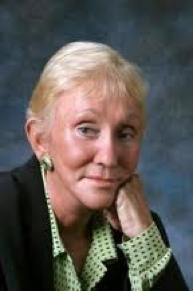 Dorothy A. Sisk is a professor at Lamar University in Beaumont, Texas, and she teaches the graduate courses in gifted education in the Teacher Education Department. She is an international consultant focusing on gifted education, leadership and creativity development, and former Director of the U. S. Office of Gifted and Talented in Washington D.C. Dr. Sisk was a co-founder and first President of the American Creativity Association, and a co-founder and President of the World Council for Gifted and Talented Children, serving as their executive administrator, and editor of Gifted International (1980-1990). She is author and co-author of 14 books and numerous chapters and articles, and serves on a number of national and international journals as a reviewer or editor.
Dorothy A. Sisk is a professor at Lamar University in Beaumont, Texas, and she teaches the graduate courses in gifted education in the Teacher Education Department. She is an international consultant focusing on gifted education, leadership and creativity development, and former Director of the U. S. Office of Gifted and Talented in Washington D.C. Dr. Sisk was a co-founder and first President of the American Creativity Association, and a co-founder and President of the World Council for Gifted and Talented Children, serving as their executive administrator, and editor of Gifted International (1980-1990). She is author and co-author of 14 books and numerous chapters and articles, and serves on a number of national and international journals as a reviewer or editor.
Ronald A. Beghetto, PhD
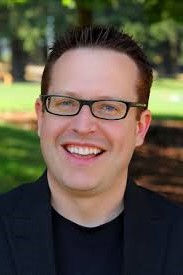 Ronald Beghetto is an internationally recognised expert on creative thought and action in educational settings. He is the Pinnacle West Presidential Chair and Professor for the Mary Lou Fulton Teachers College at Arizona State University. Ron is the Editor for the Journal of Creative Behavior, Book Series Editor for Creative Theory and Action in Education, a Creativity Advisor for the LEGO foundation, and Fellow of the American Psychological Association and the Society for the Psychology of Aesthetics, Creativity and the Arts. He has published 10 books and over 100 articles and book chapters on the topic of creativity in educational settings. Prior to joining the faculty at ASU, Ron served as Professor and Director of Innovation House and the University of Connecticut. He is the 2018 recipient of the Rudolf Arnheim Award for Outstanding Achievement in the Psychology of Aesthetics, Creativity and the Arts and 2008 recipient of Daniel E. Berlyne Award from Div. 10 of the American Psychological Association. Ron has received recognition and numerous awards for excellence in teaching, including the University of Oregon ‘s highest teaching award for early career faculty (2006 Ersted Crystal Apple Award), the 2015 ALD Faculty of the Year Award at the University of Connecticut, and the Provost’s Recognition for Excellence in Teaching (University of Connecticut). Previously, he was a Professor of Educational Psychology, Director of UCONN’s Innovation House, and Graduate Program Coordinator for the Cognition, Instruction, Learning, & Technology Program in the Neag School of Education at the University of Connecticut. More information about Ron Beghetto can be found at www.ronaldbeghetto.com
Ronald Beghetto is an internationally recognised expert on creative thought and action in educational settings. He is the Pinnacle West Presidential Chair and Professor for the Mary Lou Fulton Teachers College at Arizona State University. Ron is the Editor for the Journal of Creative Behavior, Book Series Editor for Creative Theory and Action in Education, a Creativity Advisor for the LEGO foundation, and Fellow of the American Psychological Association and the Society for the Psychology of Aesthetics, Creativity and the Arts. He has published 10 books and over 100 articles and book chapters on the topic of creativity in educational settings. Prior to joining the faculty at ASU, Ron served as Professor and Director of Innovation House and the University of Connecticut. He is the 2018 recipient of the Rudolf Arnheim Award for Outstanding Achievement in the Psychology of Aesthetics, Creativity and the Arts and 2008 recipient of Daniel E. Berlyne Award from Div. 10 of the American Psychological Association. Ron has received recognition and numerous awards for excellence in teaching, including the University of Oregon ‘s highest teaching award for early career faculty (2006 Ersted Crystal Apple Award), the 2015 ALD Faculty of the Year Award at the University of Connecticut, and the Provost’s Recognition for Excellence in Teaching (University of Connecticut). Previously, he was a Professor of Educational Psychology, Director of UCONN’s Innovation House, and Graduate Program Coordinator for the Cognition, Instruction, Learning, & Technology Program in the Neag School of Education at the University of Connecticut. More information about Ron Beghetto can be found at www.ronaldbeghetto.com
Kyung-Hee Kim, PhD
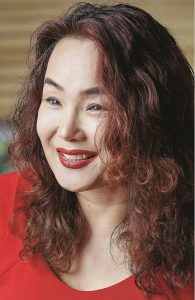 Kyung-Hee Kim (Kay Kim) is professor of educational psychology at William & Mary Graduate School of Education, Virginia, USA. Kay is an inventor, with two bio-medical technology US patents, and best-selling author, including The Creativity Challenge (USA, 2016), Education for the Future (Korea, 2019) and Let Them Play Outside the Box (Korea, 2019). She believes everyone can become an innovator using creative thinking skills. Her humble origin on a farm in Korea proves it. Her life’s work promotes creative thinking skills of mastery, imagination, and critical thinking as antidotes to creativity-killing social conformity and test-centric rigidity. She began that work studying under the father of creativity, E. Paul Torrance. Kay won the Berlyne Award (2009) from the American Psychological Association, and the Hollingworth Award (2008), the Early Scholar Award (2011), and the Torrance Award (2018) from the National Association for Gifted Children, becoming one of the foremost experts on creativity assessment and innovation. Her Creativity Quotient assessment uses her eye-tracking patent. Media and government leaders frequently seek her expertise through interviews and speaking engagements. It is her passion to promote entrepreneurship through the creative thinking methodologies of her life’s work.
Kyung-Hee Kim (Kay Kim) is professor of educational psychology at William & Mary Graduate School of Education, Virginia, USA. Kay is an inventor, with two bio-medical technology US patents, and best-selling author, including The Creativity Challenge (USA, 2016), Education for the Future (Korea, 2019) and Let Them Play Outside the Box (Korea, 2019). She believes everyone can become an innovator using creative thinking skills. Her humble origin on a farm in Korea proves it. Her life’s work promotes creative thinking skills of mastery, imagination, and critical thinking as antidotes to creativity-killing social conformity and test-centric rigidity. She began that work studying under the father of creativity, E. Paul Torrance. Kay won the Berlyne Award (2009) from the American Psychological Association, and the Hollingworth Award (2008), the Early Scholar Award (2011), and the Torrance Award (2018) from the National Association for Gifted Children, becoming one of the foremost experts on creativity assessment and innovation. Her Creativity Quotient assessment uses her eye-tracking patent. Media and government leaders frequently seek her expertise through interviews and speaking engagements. It is her passion to promote entrepreneurship through the creative thinking methodologies of her life’s work.
2019 Roundtable
Topic: ‘Marking 105th Birthday Anniversary of the father of Contemporary Creativity: E. Paul Torrance’
Alan S. Kaufman, PhD, Yale University, Connecticut, USA
 Dr. Alan Kaufman is Clinical Professor of Psychology at Yale University Child Study Center (since 1997). He is a Penn graduate who earned his PhD under Robert Thorndike at Columbia University. Alan worked closely with David Wechsler in the development of the WISC-R, and has published, with Nadeen Kaufman, numerous tests, including the KABC-II Normative Update, KTEA-3, and KBIT-2. The 1983 theory-based K-ABC, inspired by Paul Torrance’s introduction of cerebral specialization theory to Alan and Nadeen, has been translated and adapted throughout the world. Alan has published widely on the clinical and neuropsychological assessment of intelligence and has greatly impacted interpretation of IQ tests, especially Wechsler’s. His books include the 1979 landmark Intelligent Testing with the WISC-R and, more recently, Essentials of WAIS-IV Assessment—2nd ed. (with Elizabeth Lichtenberger; 2013) and Intelligent Testing with the WISC-V (with Susie Raiford & Diane Coalson; 2016). Alan and Nadeen co-edit the influential Wiley book series Essentials of Psychological Assessment. Alan, a Fellow of four divisions of APA and of APS, is recipient of APA Division 16’s Senior Scientist Award (1997) and Division 5’s Samuel J. Messick Distinguished Scientific Contributions Award (2012). Since 2012, first Fordham University, and now Gonzaga University, presents the Alan S. Kaufman Intelligent Testing Award at its annual Spring Assessment Conference. Alan’s greatest achievement is being James Kaufman’s father. Together they coauthored the 1995 book The Worst Baseball Pitchers of All Time.
Dr. Alan Kaufman is Clinical Professor of Psychology at Yale University Child Study Center (since 1997). He is a Penn graduate who earned his PhD under Robert Thorndike at Columbia University. Alan worked closely with David Wechsler in the development of the WISC-R, and has published, with Nadeen Kaufman, numerous tests, including the KABC-II Normative Update, KTEA-3, and KBIT-2. The 1983 theory-based K-ABC, inspired by Paul Torrance’s introduction of cerebral specialization theory to Alan and Nadeen, has been translated and adapted throughout the world. Alan has published widely on the clinical and neuropsychological assessment of intelligence and has greatly impacted interpretation of IQ tests, especially Wechsler’s. His books include the 1979 landmark Intelligent Testing with the WISC-R and, more recently, Essentials of WAIS-IV Assessment—2nd ed. (with Elizabeth Lichtenberger; 2013) and Intelligent Testing with the WISC-V (with Susie Raiford & Diane Coalson; 2016). Alan and Nadeen co-edit the influential Wiley book series Essentials of Psychological Assessment. Alan, a Fellow of four divisions of APA and of APS, is recipient of APA Division 16’s Senior Scientist Award (1997) and Division 5’s Samuel J. Messick Distinguished Scientific Contributions Award (2012). Since 2012, first Fordham University, and now Gonzaga University, presents the Alan S. Kaufman Intelligent Testing Award at its annual Spring Assessment Conference. Alan’s greatest achievement is being James Kaufman’s father. Together they coauthored the 1995 book The Worst Baseball Pitchers of All Time.
2018 Roundtable
Topic: ‘Can We Teach Creative Thinking?’
Nathaniel Barr, PhD, Sheridan College, Ontario, Canada
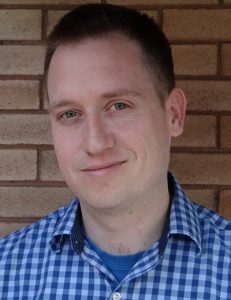 Dr Nathaniel Barr is a Professor of Creativity and Creative Thinking in the Faculty of Humanities and Social Sciences, at Sheridan College, Ontario, Canada. He specializes in cognitive psychology. Previously, he was a postdoctoral research fellow at the University of Waterloo, Canada. An accomplished researcher, Prof Barr has published articles on the psychology of creativity, moral judgment, belief, and the intersection of thinking and technology. His research has been covered extensively in the media, including Scientific American, Washington Post, CBC, and NPR, and he has been interviewed on national and international radio and television programs. During his post-doc he conducted applied research for the Bank of Canada aimed at understanding the perceptual and decision processes involved in the authentication of currency. Prof Barr has taught courses on creativity, psychology, cognition, memory, and neuroscience.
Dr Nathaniel Barr is a Professor of Creativity and Creative Thinking in the Faculty of Humanities and Social Sciences, at Sheridan College, Ontario, Canada. He specializes in cognitive psychology. Previously, he was a postdoctoral research fellow at the University of Waterloo, Canada. An accomplished researcher, Prof Barr has published articles on the psychology of creativity, moral judgment, belief, and the intersection of thinking and technology. His research has been covered extensively in the media, including Scientific American, Washington Post, CBC, and NPR, and he has been interviewed on national and international radio and television programs. During his post-doc he conducted applied research for the Bank of Canada aimed at understanding the perceptual and decision processes involved in the authentication of currency. Prof Barr has taught courses on creativity, psychology, cognition, memory, and neuroscience.
Karl K. Jeffries, PhD, University of Central Lancashire, UK
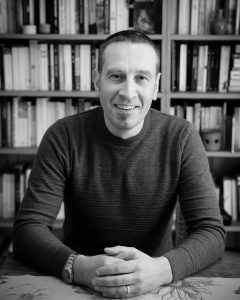 Dr Karl K. Jeffries is a design lecturer and researcher at the University of Central Lancashire (UCLan). For the past decade, he has been the Course Director for UCLan’s master’s distance learning programme in creative thinking. His work draws together research from the psychological sciences and arts & design sectors, with a specialist focus on testing the relationship between competencies and creativity. He was the first researcher to publish a systematic review of the Consensual Assessment Technique (CAT) in relation to design research and to resolve issues of CAT reliability as a measure of graphic design creativity. His interest in creativity research began over twenty years ago as a means to inform creative training for design professionals, postgraduate, undergraduate, and tertiary design education. This lead to the development of ‘Creativity Diagnostic’ software to accommodate the challenges of mass higher education at the time, and new research methodologies with which to explore the relationship between skills and creativity within the audiovisual and games design industry. Dr Jeffries’ current focus is to help harmonise international protocols for the use of expert assessments in creativity research
Dr Karl K. Jeffries is a design lecturer and researcher at the University of Central Lancashire (UCLan). For the past decade, he has been the Course Director for UCLan’s master’s distance learning programme in creative thinking. His work draws together research from the psychological sciences and arts & design sectors, with a specialist focus on testing the relationship between competencies and creativity. He was the first researcher to publish a systematic review of the Consensual Assessment Technique (CAT) in relation to design research and to resolve issues of CAT reliability as a measure of graphic design creativity. His interest in creativity research began over twenty years ago as a means to inform creative training for design professionals, postgraduate, undergraduate, and tertiary design education. This lead to the development of ‘Creativity Diagnostic’ software to accommodate the challenges of mass higher education at the time, and new research methodologies with which to explore the relationship between skills and creativity within the audiovisual and games design industry. Dr Jeffries’ current focus is to help harmonise international protocols for the use of expert assessments in creativity research
Chris Wilson works, Aston University, United Kingdom
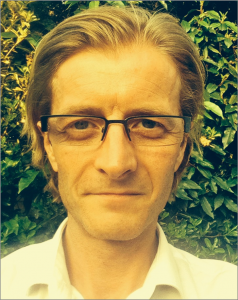 Chris Wilson works in the Centre for Learning Innovation and Professional Practice at Aston University, United Kingdom, a globally renowned higher education institution and the UK’s leading university for business and the professions. He is a classically trained musician and practitioner in the technological arts with degrees in music and philosophy, has presented and published internationally on the subjects of creativity, artistry, technology and education, including the book Making Projects Sing: A Musical Perspective of Project Management. Chris is a Senior Fellow of the Higher Education Academy, UK, and winner of KIE Best Paper Recognition Award (Creativity Category).
Chris Wilson works in the Centre for Learning Innovation and Professional Practice at Aston University, United Kingdom, a globally renowned higher education institution and the UK’s leading university for business and the professions. He is a classically trained musician and practitioner in the technological arts with degrees in music and philosophy, has presented and published internationally on the subjects of creativity, artistry, technology and education, including the book Making Projects Sing: A Musical Perspective of Project Management. Chris is a Senior Fellow of the Higher Education Academy, UK, and winner of KIE Best Paper Recognition Award (Creativity Category).
2017 Roundtable
Topic: ‘Fostering Creative Thinking in K-16 Education’
Darlene Boyd, EdD, University of California Irvine’s Gifted Students Network, USA
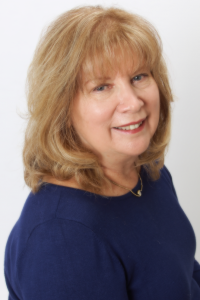 Dr Darlene Boyd has been the Director of the University of California Irvine’s Gifted Students Network for over twenty years. She received her EdD from Temple University and completed postdoctoral work at Harvard University. Before coming to UCI, Dr. Boyd served as Widener University’s Director of the Gifted and Creative Studies program. She has served as an assistant professor of educational administration, educational policy studies and gifted education studies. She has also served as a school district Curriculum Director in the Rose Tree Media School District. Dr. Boyd frequently presents workshops on designing curriculum for gifted students. She has presented and published articles on gifted studies and strategies for enhancing creative productive thinking.
Dr Darlene Boyd has been the Director of the University of California Irvine’s Gifted Students Network for over twenty years. She received her EdD from Temple University and completed postdoctoral work at Harvard University. Before coming to UCI, Dr. Boyd served as Widener University’s Director of the Gifted and Creative Studies program. She has served as an assistant professor of educational administration, educational policy studies and gifted education studies. She has also served as a school district Curriculum Director in the Rose Tree Media School District. Dr. Boyd frequently presents workshops on designing curriculum for gifted students. She has presented and published articles on gifted studies and strategies for enhancing creative productive thinking.
Dr. Boyd is a founding board member and past president of the American Creativity Association. She serves as a board member for several educational associations and has been a trustee for the Los Angeles Mirman School for the highly gifted. Dr. Boyd has served on the board of the California Association for the Gifted and the Orange County Council for Gifted and Talented Education. She has received distinguished service awards from both the California Association for the Gifted and the Orange County Council for Gifted and Talented education. Dr. Boyd has given workshops on creative problem solving at numerous universities. She was the keynote speaker for the Japan-USA Representatives’ Meeting and Open Symposium to Promote Creativity in Tokyo, Japan and her work is published in the Japanese Technology and Economy Journal. Most recently, she has been the featured speaker at conferences at Singapore Management University.
Dr. Boyd’s research on a Stage Theory of Creative Productive Thinking, has received commendation in the US, Russia, Italy, Japan, South Africa and China. She has been asked to speak in these countries on several occasions. Dr. Boyd is a sought after speaker in the areas of creativity, creative problem solving, creative productive thinking and gifted studies.
Tara Grey Coste, PhD, University of Southern Maine, USA
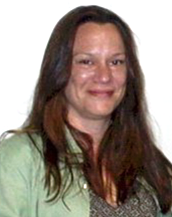 Dr Tara Grey Coste is a Leadership and Organizational Studies professor at the University of Southern Maine. Her work focuses on refining the training processes that enhance creativity in teams and on teaching business professionals techniques to enhance their leadership abilities in multi-cultural, multi-national environments. She is a Colleague of the Creative Education Foundation, Leader at the Creative Problem Solving Institute, Visiting Scholar at Singapore Management University’s Wee Kim Wee Centre for Cultural Diversity in Business, Co-Founder of the International Forum of Creativity Organizations, and former President and Director of Communications of the American Creativity Association.
Dr Tara Grey Coste is a Leadership and Organizational Studies professor at the University of Southern Maine. Her work focuses on refining the training processes that enhance creativity in teams and on teaching business professionals techniques to enhance their leadership abilities in multi-cultural, multi-national environments. She is a Colleague of the Creative Education Foundation, Leader at the Creative Problem Solving Institute, Visiting Scholar at Singapore Management University’s Wee Kim Wee Centre for Cultural Diversity in Business, Co-Founder of the International Forum of Creativity Organizations, and former President and Director of Communications of the American Creativity Association.
Vlad Petre Glăveanu, PhD, Bergen University, Norway, and University of Neuchatel, Switzerland
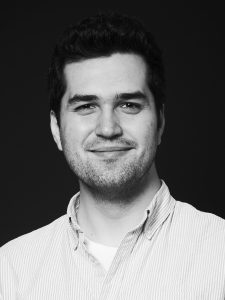 Dr Vlad Petre Glăveanu is Associate Professor II at Bergen University, Norway, and Associate Researcher at the University of Neuchatel, Switzerland, and Paris Descartes University, France. He received his PhD from the London School of Economics and Political Science, UK, and published extensively in the area of the cultural psychology of creativity with a focus on collaborative creativity, the development of creativity, educating creativity and implicit theories of creativity. His work is presented in over 150 articles and book chapters. He has edited or co-edited three recent Handbooks (The Palgrave Handbook of Creativity and Culture Research; The Cambridge Handbook of Creativity across Domains; The Oxford Handbook of Imagination and Culture) and is currently editing the Creativity Reader for Oxford University Press. Other books include: Thinking through creativity and culture (Transaction, 2014), Distributed creativity (Springer, 2014), Rethinking creativity (Routledge, 2015, co-edited) and Creativity: A new vocabulary (Palgrave, 2016, co-edited). He is Editor of Europe’s Journal of Psychology, an open-access journal published by PsychOpen.
Dr Vlad Petre Glăveanu is Associate Professor II at Bergen University, Norway, and Associate Researcher at the University of Neuchatel, Switzerland, and Paris Descartes University, France. He received his PhD from the London School of Economics and Political Science, UK, and published extensively in the area of the cultural psychology of creativity with a focus on collaborative creativity, the development of creativity, educating creativity and implicit theories of creativity. His work is presented in over 150 articles and book chapters. He has edited or co-edited three recent Handbooks (The Palgrave Handbook of Creativity and Culture Research; The Cambridge Handbook of Creativity across Domains; The Oxford Handbook of Imagination and Culture) and is currently editing the Creativity Reader for Oxford University Press. Other books include: Thinking through creativity and culture (Transaction, 2014), Distributed creativity (Springer, 2014), Rethinking creativity (Routledge, 2015, co-edited) and Creativity: A new vocabulary (Palgrave, 2016, co-edited). He is Editor of Europe’s Journal of Psychology, an open-access journal published by PsychOpen.
2016 Roundtable
Topic: ‘Need of Creativity in K-16 Education’
Bonnie Cramond, PhD, University of Georgia, USA
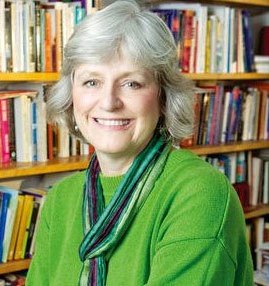 Dr Bonnie Cramond is a Professor of Educational Psychology at the University of Georgia. She has been the Director of the Torrance Center for Creativity and Talent Development, a board member of the National Association for Gifted Children, and editor of the Journal of Secondary Education. She is on the Advisory Board for the American Creativity Association; the Future Problem Solving Program International; the Global Center for Gifted and Talented Children; is a member of the International Creativity Society; on the review board for several journals; and, has published numerous articles, chapters, and a book (another is in the works). A national and international speaker, she has visited over 35 countries working toward infusing creativity into classrooms at all levels. She was honored in 2011 to be invited to give a TEDx Talk on creativity and has gratefully received other international and national honors.
Dr Bonnie Cramond is a Professor of Educational Psychology at the University of Georgia. She has been the Director of the Torrance Center for Creativity and Talent Development, a board member of the National Association for Gifted Children, and editor of the Journal of Secondary Education. She is on the Advisory Board for the American Creativity Association; the Future Problem Solving Program International; the Global Center for Gifted and Talented Children; is a member of the International Creativity Society; on the review board for several journals; and, has published numerous articles, chapters, and a book (another is in the works). A national and international speaker, she has visited over 35 countries working toward infusing creativity into classrooms at all levels. She was honored in 2011 to be invited to give a TEDx Talk on creativity and has gratefully received other international and national honors.
Doug Hall, Ranch and the Innovation Engineering Institute, USA
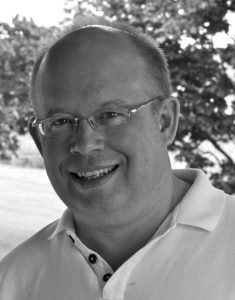 Doug Hall is the founder and CEO of the Eureka! Ranch and the Innovation Engineering Institute. He is a hands on innovation practitioner, quantitative researcher, educator and author whose life’s work is applying system thinking to innovation. He is a chemical engineer by education who rose to the rank of Master Marketing Inventor at Procter & Gamble—inventing and shipping a record nine innovations in 12 months by applying system thinking to innovation strategy and execution.
Doug Hall is the founder and CEO of the Eureka! Ranch and the Innovation Engineering Institute. He is a hands on innovation practitioner, quantitative researcher, educator and author whose life’s work is applying system thinking to innovation. He is a chemical engineer by education who rose to the rank of Master Marketing Inventor at Procter & Gamble—inventing and shipping a record nine innovations in 12 months by applying system thinking to innovation strategy and execution.
Doug is the best selling author of six books with a seventh in process. He has starred in two network television series and co-hosted a national radio program. He wrote and performed North Pole Tenderfoot, a one man play on his adventure recreating Admiral Peary’s last dash to the North Pole.
For his pioneering work in applying system thinking to Innovation, Doug was awarded an Honorary Doctorate in Engineering from the University of Maine and a Doctor of Laws from the University of Prince Edward Island. Beware. rest before you attend Innovation College with Doug as he has never ending energy. Despite his crazy schedule he views teaching Innovation College as his most important priority.
2015 Roundtable
Topic: ‘Celebrating 100th years anniversary of birth Dr E. Paul Torrance’
Fredricka K. Reisman PhD, Drexel-Torrance Center for Creativity and Innovation & School of Education, Drexel Univers
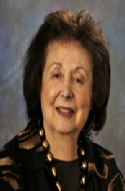
Dr Fredricka K. Reisman is professor and founding director of Drexel’s School of Education. She currently is professor in the School of Education and Director of the Drexel/Torrance Center for Creativity and Innovation. Additionally, Dr. Reisman served as Assistant Provost for Assessment and Evaluation and Interim Associate Dean for Research in the School of Technology and Professional Studies (SoTAPS) within Goodwin College.
She created the Creativity and Innovation Graduate and Undergraduate programs housed in Drexel’s School of Education. The program has a master’s degree and graduate and undergraduate certificates. A creativity concentration is available in the School of Education Ed.D. program.
Prior to coming to Philadelphia, Dr. Reisman served as Professor and Chair of the Division of Elementary Education at the University of Georgia and as an elementary, middle school, high school mathematics teacher in New York State, and mathematics education instructor at Syracuse University. Dr. Reisman has an impressive record of external funding from the US Department of Education, the PA Department of Education, National Science Foundation (NSF) and foundation support such as the Wallace Funds and the Anna E. Casey Foundation, to assist pre-and in-service teachers in developing their mathematics and technology skills both in regular and charter public schools including national projects. She has collaborated on funded projects in the Drexel College of Engineering and served as Co-Pi or external evaluator on several College of Engineering funded projects.
In 1984, Dr. Reisman headed the Drexel project management team for the Computer Applications in Teaching Program which was the first major effort to integrate computing into instruction in the Philadelphia high schools. She has just (2014) completed her third USDE funded Transition to Teaching Program bringing her funding to over $13,000,000 since 2002.
She is the author of several books with subjects that include, diagnostic teaching, teaching mathematics to children with special needs, elementary education pedagogy, and mathematics pedagogy. She also has co-authored a trilogy of books with world-renowned creativity scholar and researcher, E. Paul Torrance, on teaching mathematics creatively. Dr. Reisman has completed a Grades 1 and 2 Diagnostic Mathematics Assessment that incorporates creativity theory published in 2009 by Scholastic Testing Service (STS), publisher of the Torrance Tests of Creative Thinking. She has completed with co-author David Tanner (formerly Chief Innovation Officer at Dupont) a 2014 book entitled Creativity as a Bridge Between Education and Industry: Fostering New Innovations available from Amazon.com.
Dr. Reisman was selected as Editor of the 2013 KIE British Conference Book Series entitled Creativity: Process, Product, Personality, Environment & Technology. She chaired the creativity section of the 2014 KIE conference held in Riga, Latvia, was a keynoter, and served as Editor of the 2014 KIE Conference Book. She was appointed to the KIE Board and will serve as Editor of the 2015 KIE Istanbul, Turkey Conference Book. Dr. Reisman will give the Keynote for the first E. Paul Torrance panel at the 2015 KIE Istanbul conference that honors Dr. Torrance’s body of work on creativity and creative pedagogy.
Dr. Reisman was awarded the national 2002 David Tanner Champion of Creativity Award by the American Creativity Association (ACA) and was appointed to the ACA national Board, served as ACA Treasurer and is currently ACA president. Drexel is headquarters for ACA.
Dr. Reisman and co-authors, Larry Keiser and Obinna Otti, have created a free Apple App (downloaded via iTunes) entitled the Reisman Diagnostic Creativity Assessment (RDCA) which taps 11 creativity research-based factors (originality, fluency, flexibility, tolerance of ambiguity, resistance to premature closure, risk taking, intrinsic and extrinsic motivation, divergent and convergent thinking, and elaboration). They are creating a strategies manual that includes activities to enhance each of the RDCA factors. An annual SIG featuring the RDCA will be inaugurated in Istanbul at the 2015 KIE conference.